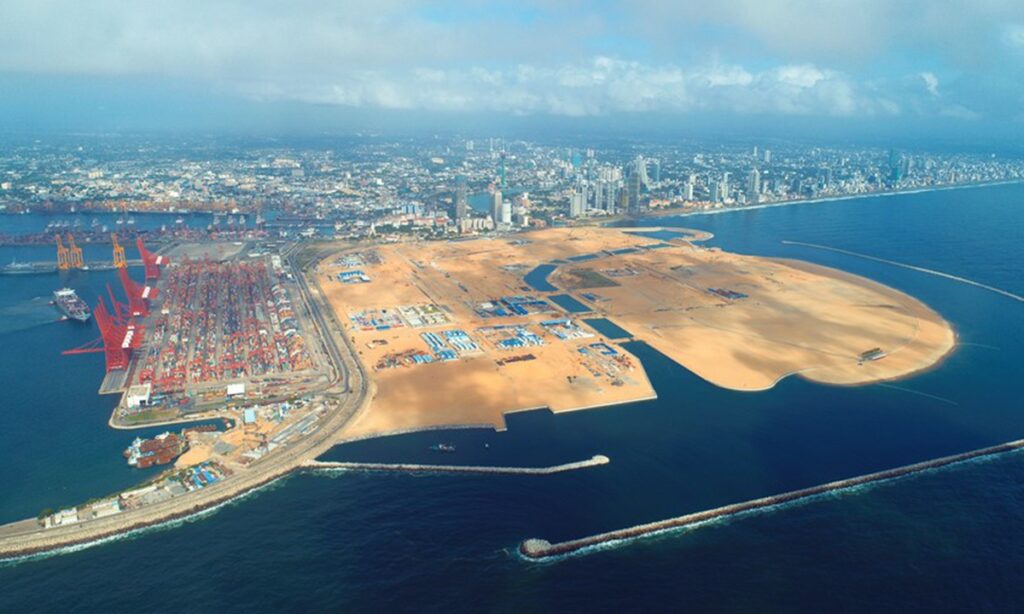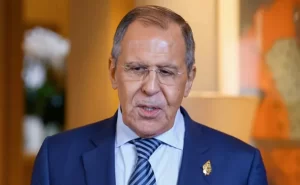
Stay away from China-backed $14bn Colombo port city project — India’s message for pvt sector
New Delhi: India is not interested in being involved in the Colombo Port (PCC) project worth $ 14 billion supported by China and wants to convey to Indian private stakeholders that “any involvement” will be seen “negatively”, the printing has been studied.
Comes at 269 hectares of land reclaimed from the Indian Ocean, PCC is being developed as an extension of the Kolombo central business district. Launched during a visit by Chinese President Xi Jinping in 2014, this is the largest single -direct investment in Sri Lanka. Beijing has invested $ 1.4 billion to reclaim the land for the project.
According to the official website of Chec Port City Colombo Private Limited, this project is imagined as a residential destination, retail, and the main business of South Asia. This will consist of five different regions “Financial Districts, Tengah Park Life, Island Life, Marina, and International Island”.
Senior government officials told The Print that the project emerged for discussions in a high-level inter-statement meeting chaired by Vikram Misri’s National Security Advisor on July 1.
Meeting – Gathering to see opportunities to improve economic relations with Colombo – take a strong view that if the private stakeholders decide to be involved in PCC in any way, they “basically will be alone”, according to government officials who are familiar with their decisions.
India is concerned that with “Extra Territorial and Loose Jurisdiction”, PCC increases concerns as “hubs for money laundering and extra-legal activities” and “Indian companies that invest there can face deeper supervision of relevant agents”, according to the minutes of the meeting seen by mold.
In addition, it is also felt that PCC, which is imagined as a financial center, will “compete with India’s own plan, such as the City of City in Gujarat”.
After completion, the Gujarat International Finance City (Gift) will be India’s first business area to accommodate the International Financial Services Center and Special Economic Zones for Domestic and International Financial Services.
In the July 1 meeting, India also prepared a comprehensive plan to increase its assistance to Sri Lanka, improve critical infrastructure and use the opportunity to strengthen traditional bonds between the two neighbors. Several steps that must be taken include the development of the Trincomalee Port, electricity projects, increased flight frequencies, and the start of ferry services.
Why India is aware of this project
New Delhi has been alert to be involved in PCC despite the sharpness of the Sri Lanka government to invest in a substantial way. With the presence of China that grew in the Indian Ocean region, India saw this project as a “serious threat” to its maritime security. The first phase of this project is likely to be completed in 2027, although the overall pregnancy period is 25 years.
Explaining the reluctance of the government, Ashok K. Kantha, a former high commissioner for Sri Lanka and Ambassador to China, said that given the nature of the project, India had a long reservation and was aware of the Indian companies involved.
Kantha, who is the Director of the Delhi -based Chinese Study Institute, added that the project could not be seen separately. “This is part of a larger pattern of Chinese breakthroughs in all sectors in the island country, with the Chinese entity obtained strategic assets in several cases,” he said.
The retired diplomat provides the Hambantota port for example. “It was taken over by Chinese companies with a rental of 99 years because the Sri Lanka government could not serve debts for economic making projects that could not be carried out. At the end of 2016, the port project accumulated losses of up to 300 million dollars. In July 2017, the government was limited to sign an agreement to hand over the port to China, “he added.
There is a long list of projects that cannot be worn economically in the infrastructure sector conducted by Sri Lanka with Chinese loans, often with commercial conditions and at increasing costs, which contribute to Kolombo into the debt trap, he said further.
In Colombo Port City too, he added, China Harbor Engineering Company (CHEC) provides funds, but 43 percent of the reclamation land is handed over to the Chinese entity with a rental of 99 years.
What makes this worrying, according to Kantha, is that the Chec is a subsidiary of the Chinese China Communications Construction Company infrastructure company, which led the Belt Initiative and the Ambitious Path of President XI.
“In Sri Lanka too, a strong reservation has been voiced about the long -term tax holiday given to the project also about the environmental impact. The type of concession agreement that has been signed does not get much income for the Sri Lanka government, “Kantha said, adding that there was a valid concern about the project that became a paradise for money laundering.
“This has a pregnancy period of at least 25 years. I did not see the project to be economically profitable for Sri Lanka, even though the Chinese entity had obtained strategic assets on long -term leases as they did in the Hambantota port case. “






